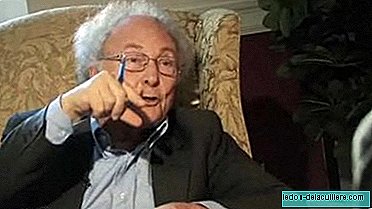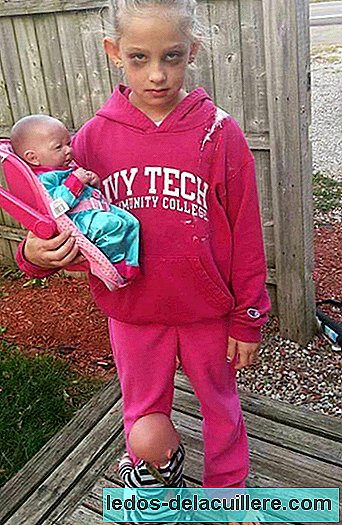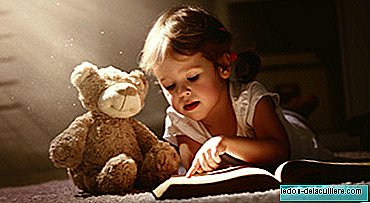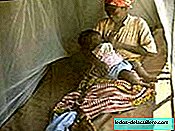
"The educational revolution" is an interesting Punset documentary that talks about the need to reformulate the task of the educator in the classroom.
However, Punset begins the documentary leaving aside the family's responsibilities in educational matters, something that we hope to resume soon, because the educational system cannot try to "solve" or improve only if teachers change.
"The educational revolution" is not exclusive to teachers, it is the task of society as a whole, starting with families (beware, teachers also have families and children who are students), and the Administration.
And of course that educators have much to do, after all they are their reference figure in school, but the lack of human and material resources, the lack of training and recycling, the lack of involvement of families ... all these points affect that, in many occasions, the school does not work as it would be desirable.
The documentary did not promise them too good for educators at first, however we immediately see that the professors who are interviewed are, in my opinion, an example of what they claim in it, of the much needed educational revolution.
What teachers say
In fact, in spite of that attempt to "leave aside" parents and administrations when it comes to raising failures at school, in interviews with teachers we can see in the documentary several times it is mentioned the responsibility of the Administration, of the lack of resources and the lack of interest of the parents.
The teachers interviewed comment on the difficulty of approaching the students without the collaboration of the parents, who often do not let themselves be seen by the educational center.
You can see that those who pronounce these words are not selfless, carcamal or repeating teachers but vocational teachers who know they are more than teachers and know the importance of emotions in the classroom and of listening to the student. They are trained to improve their teaching task, not only in academics but in pedagogical and conflict resolution.
These teachers are no exception. This is what I am used to in my teaching years in different work centers in different cities and different educational levels.
What the psychologist says
In the documentary too the boundaries between the task of the educator and the parents are confusingly mixed. The final words of the interviewed psychologist (I doubt that he has stepped on children's classrooms as a teacher) we see how he speaks of the nature of the human being, in the words of the Dalai Lama.
But his words do not seem to involve teachers, but, first, the family. Because whose task is to create an emotional bond with the little ones?
The Dalai Lama uses examples of animals and reminds us that we ourselves are social animals and that we have begun, probably throughout evolution, to understand that imperative need to feel loved and to have links. These needs are a part of what it means to be mammals because after birth we live a long period in which our survival depends on others, and that is why within us we have that social and empathic seed, because our own survival depends on such ability as a species. . That's where we come from.
Other words that the interviewed psychologist speaks about the teachers' tasks are also remarkable: that they know how to provide students with models of responsible behavior.
Is that really the task of the teachers? Shouldn't parents take care of being their referents and educators in this regard? What can a teacher do in class with a child who does not know basic rules of behavior, relationship or respect because he does not have them at home?
I think that the psychologist's statements are not very well aimed in these aspects, and they sound a lot like what someone who does not know firsthand the reality of the classroom would say.

Good ideas to improve education
Some ideas that I agree with in the documentary They are:
- We are not served by teachers who exclusively distil academic content
- It is important that teachers learn to manage the basic emotions of their students
- The task of a non-vocational teacher is much harder
- The teacher must know the subject and also how to teach it
- It has to be attentive to each of the children, their feelings
- A good atmosphere has to be promoted in the classroom
- The child has to feel, experiment to know his surroundings
- Students must be involved in conflict resolution
- The importance of plastic and music, arts that unfortunately are reduced their importance and presence in the education system
- Parents and teachers must know how to arouse the curiosity of children
- Classes should not be static
- Classes should not be based on memorization, even if it is effective for certain mental tasks.
- It is necessary to understand and value cultural and individual diversity in the classroom
- It is necessary to understand and value what these diverse students have in common: emotions
The educational revolution is already underway
But this list of ideas should not make us think that they are distant or that our children's teachers are incapable of being good educators. Why:
- From my experience (I do not know if I move in "rare" centers, but as I say the center and the experiences that are contemplated in the documentary is very similar to what I know) I can affirm that this type of teachers simply " teaches "content is really minority today.
- Definitely, It is very important to learn to manage children's emotions. So much so that if we didn't do it for a while, the classrooms would have "exploded." Again from my experience, I assure you that if many teachers did not know how to manage their students' emotions, they would end up defeated emotionally (even physically on occasion). The basic task of meetings between educational teams or counselors, something that happens regularly and frequently throughout the course, is focused on knowing how to approach students, their particular cases, to know them, understand them and help them express their emotions. Students are trying to train in learning for themselves and in the critical spirit, something that unfortunately does not help the rest of society (read trash television).
- I don't know exactly if I know any non-vocational teacher. I know some who have had to leave the classroom due to depression problems, but I would not be able to say if they had no vocation and ended up jaded or if their desire to educate and positively influence their students have been defeated for not knowing how to manage the classroom reality. There may be a vicious circle in this circumstance.
- Classes focus from practical and original perspectives that stimulate students. If this is so in primary and secondary school, what about the nursery school, where teachers are increasingly better prepared for these tasks.
- In general, teachers do not value memorization as a mode of learning, since reflection and meaningful learning. In fact, in the documentary the images in which children are seen memorizing are old. However, memorization cannot be demonized, as explained in the documentary and we will see more broadly.
- The offer in pedagogical and psychological training for educators is increasingly wide, although of course always improved in terms of thematic variety, accessibility ...
- Most centers incorporate conflict resolution programs that involve different members of the community.
- It is difficult to achieve this in crowded classrooms, but individualized teaching that takes into account the different abilities of each student is attempted.
- Most centers, as discussed in the documentary itself, also incorporate programs for understanding and accepting cultural diversity. Something that sometimes, unfortunately, clashes with the ideas of families.
- There is no greater satisfaction for a teacher and proof that his educational task has worked than hearing his students say what they have achieved throughout the course, and we are not talking only about academic achievements. In order for students to achieve those achievements, one should not ask them what they are not able to achieve. In the documentary many of the students recognize their small (or big) triumphs, which can be from learning to speak and writing better to attend, get friends, not discuss, be responsible and other personal growth issues.
I think this last point is the most important for any teacher, knowing that, in Punset's words, it has educated the student's heart.
The educational revolution is underway, and it's everyone's business. It is not an easy task, and there is much to improve and work with the efforts of all involved. I am looking forward to seeing the next Punset documentaries that approach this problem from the other perspectives, to close this complex circle that is otherwise incomplete.
Official Site | Networks for Science in Babies and more | Parents who do not exercise, Each student is important, "Schools of colors", for integration into the school












